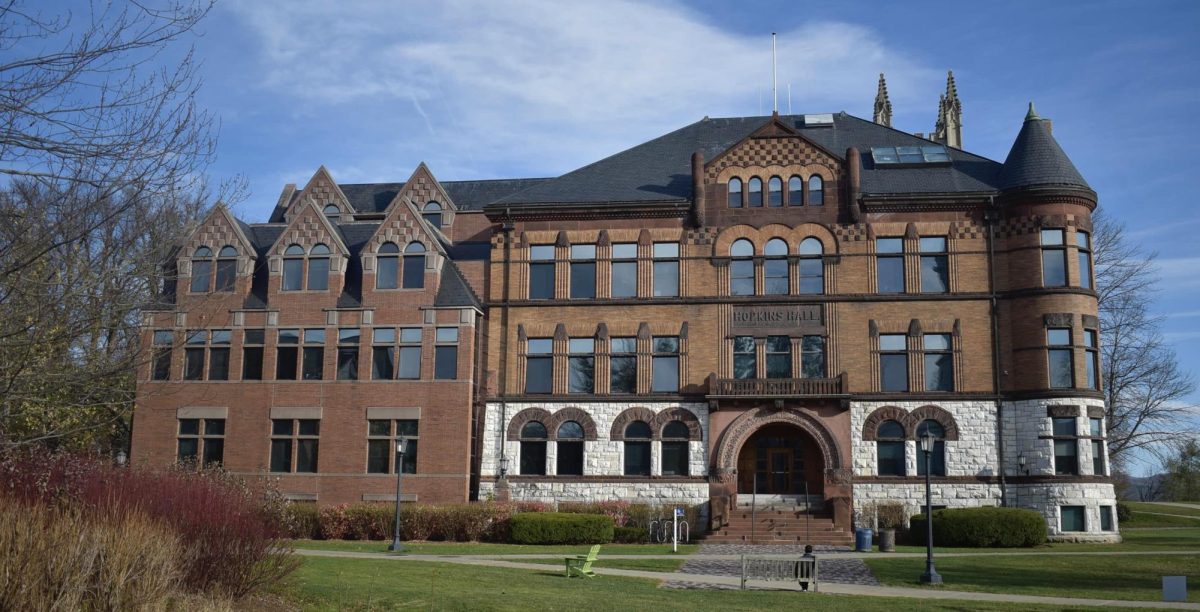From Oct. 22 to Oct. 24, Margolis Healy, a campus security consulting firm, conducted an external review process of the College’s campus safety and security (CSS). Steven Healy, CEO of Margolis Healy, and Kathy Zoner, director of organizational assessment, spoke with students, faculty, staff and community members over several days to gather perceptions on CSS within the community.
According to Director of CSS Dave Boyer, the last review was conducted in the 1990s. “We were long overdue,” Boyer said. “The original discussion regarding the peer review centered around the number of CSS retirements that are anticipated in the next 2-3 years. We have been busy working on our own succession plan for over two years and having a professional review to aid us in that process was something we welcomed.”
The hiring of the firm is in part a response to the events of last spring, in which students expressed discontent with CSS due to a variety of what protesters saw to be racially charged altercations between CSS and students. The “Where’s My Safety?” campaign, led by students, listed a review of CSS as one of its demands.
That campaign hung posters in the spring of 2019 that featured students of color holding up signs detailing their negative experiences with CSS. In November 2018, the Black Student Union hosted a town hall in which many students shared personal testimonies about unfair treatment from CSS (“BSU holds town hall exploring affinity housing,” Nov. 14, 2018).
Throughout last week, the consultants participated in 23 total meetings with different members of the College community. Margolis Healy conducted two listening sessions on Wednesday and Thursday night in which students had the opportunity to express their thoughts on CSS and campus safety in general. Both events had notably low turnout, especially in proportion to the number of students who expressed discontent with CSS last year.
On Thursday night, the event drew a total of five participants, the majority of whom expressed that they approved of CSS and had come in order to listen to those with differing opinions.
Some of those in attendance speculated that this was not a venue in which students felt comfortable. They posited that students might prefer smaller and more informal discussions, either among students or with trusted staff. Others wondered whether the listening sessions had been advertised sufficiently by the College. The resulting discussion was largely one-sided, in which students expressed that they felt CSS cared about the student body and was just trying to do its job.
“I’ve worked with them for three years now. I think what some students don’t understand is that their only concern is the safety and wellbeing of the students,” said Nick Landry ’21. “They have people who work there who are retired and come in part-time because they genuinely enjoy doing what they do.”
Many students in the room expressed frustration with what they perceived to be the tendency of debates on campus to be one-sided. The majority of the participants had come hoping to change that culture and provide an opposing perspective.
Eli Cytrynbaum ’20, a member of Minority Coalition’s (MinCo) steering board, said that the review did not meet the terms that last year’s protests had called for, such as a demand from the Coalition Against Racist Education that a civil rights organization oversee the external review. “I am hopeful this external review can be a good starting place, but the truth of the matter is that there are so many interlocking systems of elitism and investment in maintaining the status quo at this institution that it will be a long process to make substantive change,” Cytrynbaum said.
Cytrynbaum, who met with the Msrgolis Healy representatives at length seperately from the listening session, listed several factors contributing to the absence of many of last year’s protesters. “I think students partially haven’t been showing up because they aren’t totally aware of what’s going on. Also people are very tired from last year and have issues from their home communities to deal with,” he said. “Many students feel disillusioned with the school’s tendency to stagnate everything through a multitude of committees and don’t see this as worth engaging with.”
Cytrynbaum said that he is currently coordinating more opportunities for student input.
The Margolis Healy representatives said they heard a wide variety of opinions expressed throughout their time at the College. “We have heard a 360-degree perspective on these issues,” Healy said. “It would have been nice, obviously, to hear more student voices, and it’s unfortunate that we had a low turnout [Wednesday and Thursday], but I think we’ll come back.”
Margolis Healy is considering communicating with the school in the future to better coordinate an additional listening session, but in the meantime will take the overarching themes from their meetings and present them to the College.








